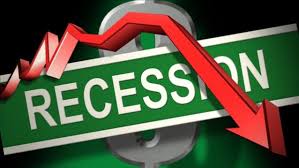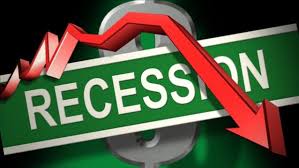
The damage that can be done to a debt-laden global economy by the looming interest rate increases was reiterated and is warning about by bond guru Bill Gross.
The course of global central banks toward tightening policy could be perilous for the economic recovery, the Janus Henderson Advisors fund manager said in his monthly investor outlook. The cost of short-term debt that corporations and individuals hold, would be increased by the increasing rates of interest through the world.
According to the Federal Reserve of the United States, while businesses owe $13.7 trillion in debt, the households have $14.9 trillion in debt in the U.S. alone.
"While governments and the U.S. Treasury can afford the additional expense, levered corporations and individuals in many cases cannot," Gross said.
With financial markets expecting to approve one more rate hike this year, the Fed is on a course of gradual rate increases. In addition to this, aimed at injecting cash into their respective economies, other central banks are pulling the reins on bond-buying and other liquidity programs.
At a time when they should tighten policy has "distorted capitalism as we once knew it, with unknown consequences lurking in the shadows of future years", the central banks of the world and especially of the West were charged with the allegation of the adherence of central bankers to hard-and-fast rules that govern, by Gross.
The general the belief among economists and bankers that it takes short-term interest rates exceeding longer-term rates — a condition known in economist as an inverted yield curve — to produce a recession, was questioned and cast a shadow on by him, for example.
"The reliance on historical models in an era of extraordinary monetary policy should suggest caution," Gross wrote. "Logically (a concept seemingly foreign to central banks staffs) in a domestic and global economy that is increasingly higher and higher levered, the cost of short-term finance should not have to rise to the level of a 10-year Treasury note to produce recession."
The founder of Pimco, which once ran the largest bond fund in the world, was the first source of recognition that Gross built for himself. Gross however now manages the $2.1 billion Janus Henderson Global Unconstrained Bond fund, which has performed poorly this year, after, amid a very public falling out with the Newport Beach, California, firm, Gross departed.
According to Morningstar, compared with 2.71 percent for the Bloomberg Barclays U.S. Aggregate Bond index, the fund has returned just 1.93 percent. Compared to that, year to date, the S&P 500 has gained 10.5 percent. Advocating real assets, Gross has warned investors away from stocks and bonds.
Particularly with tighter central bank policies ahead, he continued his warnings about the current environment.
"Today's highly levered domestic and global economies which have feasted on the easy monetary policies of recent years can likely not stand anywhere close to the flat yield curves witnessed in prior decades," he said. "Central bankers and indeed investors should vie additional tightening and 'normalizing' of short-term rates with caution."
(Source:www.cnbc.com)
The course of global central banks toward tightening policy could be perilous for the economic recovery, the Janus Henderson Advisors fund manager said in his monthly investor outlook. The cost of short-term debt that corporations and individuals hold, would be increased by the increasing rates of interest through the world.
According to the Federal Reserve of the United States, while businesses owe $13.7 trillion in debt, the households have $14.9 trillion in debt in the U.S. alone.
"While governments and the U.S. Treasury can afford the additional expense, levered corporations and individuals in many cases cannot," Gross said.
With financial markets expecting to approve one more rate hike this year, the Fed is on a course of gradual rate increases. In addition to this, aimed at injecting cash into their respective economies, other central banks are pulling the reins on bond-buying and other liquidity programs.
At a time when they should tighten policy has "distorted capitalism as we once knew it, with unknown consequences lurking in the shadows of future years", the central banks of the world and especially of the West were charged with the allegation of the adherence of central bankers to hard-and-fast rules that govern, by Gross.
The general the belief among economists and bankers that it takes short-term interest rates exceeding longer-term rates — a condition known in economist as an inverted yield curve — to produce a recession, was questioned and cast a shadow on by him, for example.
"The reliance on historical models in an era of extraordinary monetary policy should suggest caution," Gross wrote. "Logically (a concept seemingly foreign to central banks staffs) in a domestic and global economy that is increasingly higher and higher levered, the cost of short-term finance should not have to rise to the level of a 10-year Treasury note to produce recession."
The founder of Pimco, which once ran the largest bond fund in the world, was the first source of recognition that Gross built for himself. Gross however now manages the $2.1 billion Janus Henderson Global Unconstrained Bond fund, which has performed poorly this year, after, amid a very public falling out with the Newport Beach, California, firm, Gross departed.
According to Morningstar, compared with 2.71 percent for the Bloomberg Barclays U.S. Aggregate Bond index, the fund has returned just 1.93 percent. Compared to that, year to date, the S&P 500 has gained 10.5 percent. Advocating real assets, Gross has warned investors away from stocks and bonds.
Particularly with tighter central bank policies ahead, he continued his warnings about the current environment.
"Today's highly levered domestic and global economies which have feasted on the easy monetary policies of recent years can likely not stand anywhere close to the flat yield curves witnessed in prior decades," he said. "Central bankers and indeed investors should vie additional tightening and 'normalizing' of short-term rates with caution."
(Source:www.cnbc.com)





